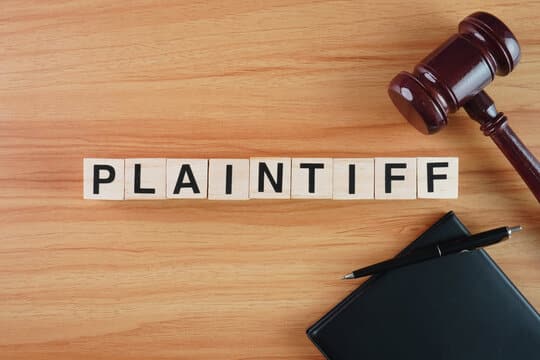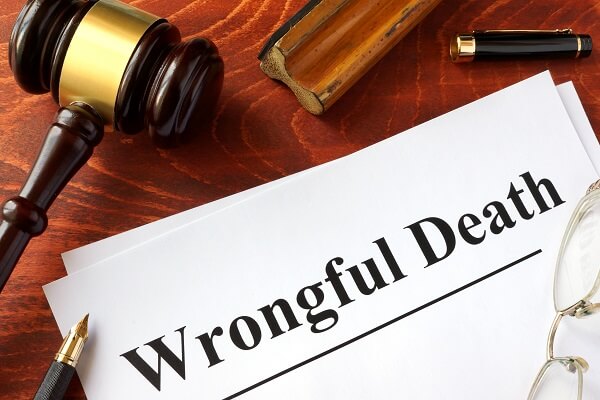
Plaintiff
A plaintiff is the party who initiates a lawsuit by filing a complaint against another party, known as the defendant, seeking legal remedy for damages or harm. In civil cases, the plaintiff claims that they have been wronged by the defendant’s actions or negligence and are pursuing compensation or specific legal action to address this harm. At 770GoodLaw, we guide plaintiffs through each step of the legal process, from filing the initial complaint to building a strong case for fair compensation and justice.
Role of the Plaintiff in a Lawsuit
The plaintiff has a central role in a lawsuit, as they are responsible for bringing the claim and providing evidence to support their case. Important responsibilities of the plaintiff include:
-
Filing the Complaint: The plaintiff formally initiates the lawsuit by filing a complaint that outlines the allegations against the defendant and the relief sought.
-
Presenting Evidence: The plaintiff must present compelling evidence to demonstrate that the defendant’s actions caused harm or damages.
-
Participating in Discovery: Plaintiffs engage in the discovery process, gathering and sharing relevant information, documents, and witness statements to build their case.
-
Proving Liability: The plaintiff carries the burden of proof, meaning they must establish the defendant’s liability by presenting credible evidence and legal arguments.
-
Pursuing Compensation: In personal injury and civil cases, plaintiffs often seek compensation for medical expenses, lost wages, pain and suffering, and other damages.
Steps for Plaintiffs in the Legal Process
The plaintiff’s journey in a lawsuit involves several stages, each with specific requirements and procedural steps. Key steps for plaintiffs include:
- Consulting an Attorney: Before filing a claim, plaintiffs often consult legal counsel to assess the validity of their case and determine the best course of action.
- Filing the Complaint: The complaint is filed in the appropriate court, officially initiating the lawsuit and notifying the defendant of the claim.
- Engaging in Discovery: During discovery, the plaintiff gathers evidence, requests information from the defendant, and prepares witness statements to support their case.
- Attending Settlement Negotiations: Many cases settle before trial, with plaintiffs and defendants negotiating a fair resolution to avoid prolonged litigation.
- Presenting the Case in Court: If a settlement is not reached, the plaintiff presents their case in court, providing evidence and testimony to prove their claims.
- Seeking Judgment or Compensation: The plaintiff seeks a favorable judgment or compensation, as determined by the court or agreed upon in a settlement.
Types of Claims Plaintiffs May Bring
Plaintiffs may bring a variety of claims depending on the circumstances and nature of the harm they experienced. Common types of claims include:
-
Personal Injury Claims: Plaintiffs may seek compensation for injuries caused by another party’s negligence, such as in car accidents, slip and falls, or medical malpractice.
-
Breach of Contract: Plaintiffs can file lawsuits for breach of contract if a party fails to fulfill their contractual obligations, seeking enforcement or damages.
-
Property Damage: When property is damaged due to another party’s negligence or intentional act, plaintiffs may file claims for repair or replacement costs.
-
Product Liability: Plaintiffs injured by defective products can pursue claims against manufacturers or sellers for failing to ensure product safety.
How 770GoodLaw Assists Plaintiffs in Legal Cases
At 770GoodLaw, we provide comprehensive support for plaintiffs, helping them navigate the complexities of filing and pursuing a claim. Our attorneys work diligently to build strong cases, negotiate favorable settlements, and represent clients in court when necessary. Our approach includes:
- Assessing Case Validity: We help plaintiffs determine the strength of their case, advising them on the best course of action for seeking justice.
- Filing and Managing Complaints: Our team handles all aspects of filing the complaint and managing case documentation, ensuring compliance with court requirements.
- Gathering and Presenting Evidence: We assist plaintiffs in collecting evidence, securing witness statements, and presenting a compelling case in support of their claims.
- Negotiating Settlements or Representing in Court: Whether through settlement negotiations or courtroom advocacy, we work tirelessly to secure fair outcomes for our clients.
Importance of Legal Representation for Plaintiffs
Filing a lawsuit as a plaintiff requires a thorough understanding of legal procedures, evidence standards, and negotiation tactics. Skilled legal representation ensures that plaintiffs are well-prepared to pursue their claims and protect their rights. At 770GoodLaw, we provide knowledgeable guidance and experienced advocacy for plaintiffs, helping them achieve justice and compensation.
Why Choose 770GoodLaw for Plaintiff Representation
Our commitment to Relentless Reliability and Sincetegrity drives us to offer thorough, client-focused representation for plaintiffs in legal cases. At 770GoodLaw, we work to protect our clients’ rights and pursue the fair compensation and justice they deserve.





